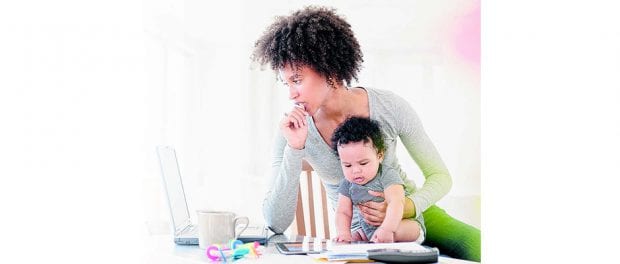LiveSmart: Parenting Myths and Advice – Take Them with a Grain of Salt

[This piece was written by Mark Osborn, M.D., Chief of Pediatrics for St. Peter’s Hospital, and a provider with St. Peter’s Children’s Health Center.]
Lots of well-meaning family and friends – and even strangers! – will have advice for new parents. Whether they are dinner-time tips from your grandmother, or disciplining tips from adults who have never had children, receiving bad advice is part of being a parent.
Some tips are so obviously off-the-wall, you can immediately discount them with a polite nod and a quick change of subject. Some of the ones we’ve heard at the practice include:
“Don’t tickle a baby’s feet, or they’ll grow up with a stutter!”
“Alcohol baths are just the thing to reduce a fever!”
“A little brandy on the gums is good for teething!”
“Dip the pacifier in honey to settle the baby!”
“If a toddler is a biter, bite him back!”
“Don’t give a haircut before a year of age, or the baby won’t be smart!”
Sometimes amid the obviously bad advice a few suggestions persist that may not leap out as bad, but could be potentially dangerous. Examples include:
“The baby can just cry himself to sleep.”
Yes, he probably can, but that does not make it good advice. When a child younger than six months old cries, it’s always for a legitimate reason. Your little one could be telling you he’s hungry, tired, needs to be changed or even just wants to cuddle. Babies that young do not understand the cause and effect of their actions – if they are crying, it is because they need something.
“Babies sleep better on their bellies!”
The American Academy of Pediatrics (AAP) recommends that healthy infants be placed on their backs for sleep, as this is the safest position. Putting your baby to sleep on her back decreases her chance of sudden infant death syndrome (SIDS), which is responsible for more infant deaths in the United States than any other cause during the first year of life.
“If the pacifier falls on the ground, put it in your mouth first to clean it before giving it back to the baby!”
You are better off washing the pacifier than licking it clean, as the American Dental Association notes the bacteria that cause dental decay can be transmitted from adult to child when a pacifier is cleaned with the parent’s saliva. Sharing eating utensils can also transfer the cavity-causing bacteria from the parent to baby, increasing the possibility of tooth decay as the children grow.
At the end of the day, if you are unsure about advice you’re being given, check in with your child’s pediatrician for guidance. You and your child’s pediatrician are a team, and you should never hesitate to turn to them for information, support, and recommended best practices.
St. Peter’s Children’s Health Center, 1092 Madison Avenue in Albany, offers a complete range of services for children from newborns to age 18. Services include well-child routine care, sick child exams, sports physicals, immunizations, health maintenance and education, and access to other hospital services and referrals to specialists. For information, call 518-525-2445.







